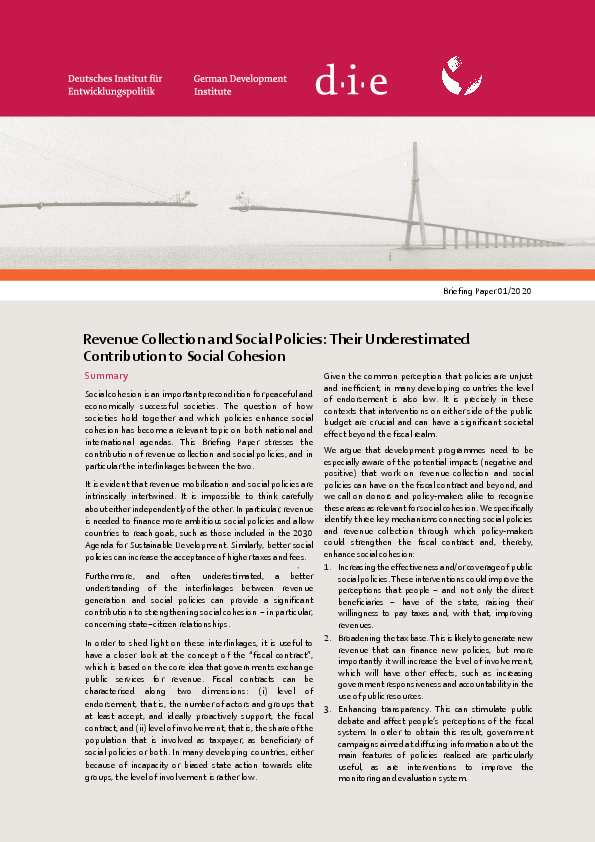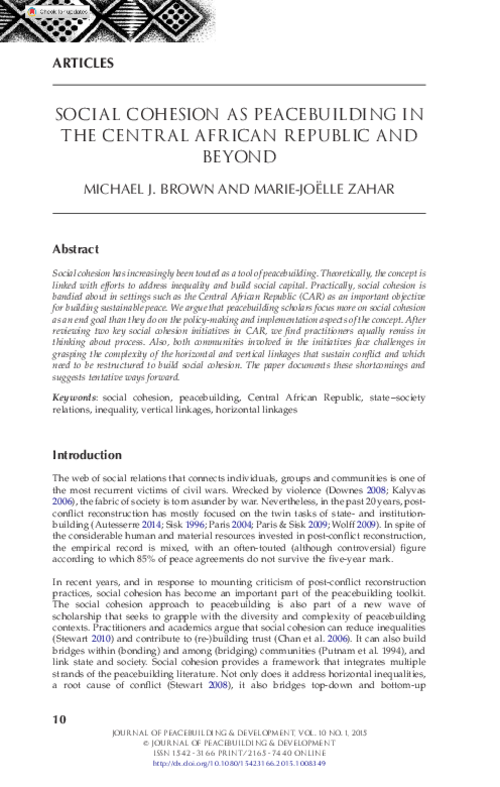Revenue collection and social policies: their underestimated contribution to social cohesion
Key facts
Solidarity
Cooperation
Morocco
Economic development
Summary
The future shape of European trade policy and the right stance to take in security and climate matters are currently the subject of fierce Franco-German debate. These issues are also relevant to development policy in the context of the overarching 2030 Agenda for Sustainable Development. Despite the opportunities afforded to them as strong donor countries to pursue joint approaches, Germany and France often tend to cooperate on an ad hoc basis rather than as part of a strategy (Krüger & Vaillé, 2019). Signed on 22 January 2019, the Aachen Treaty serves to renew the cooperation on Franco-German development cooperation (DC) formalised in the Élysée Treaty and offers the two countries a way to overcome differences and contribute jointly to global sustainable development (Aachen Treaty, Chapter 2, Article 7). Against this backdrop, this paper discusses challenges and opportunities for Franco-German DC based on two case studies in Cameroon and Morocco, which illustrate how differing mandates and methods being applied by the implementing organisations are preventing closer cooperation on the ground. Diverging political priorities, including within the national donor administrations, are also making it harder to engage in dialogue with the partner countries, especially if these have only limited capacity for donor coordination. If Germany and France succeed in overcoming their current differences, they will be able to attract other donors, particularly EU actors, for joint initiatives




